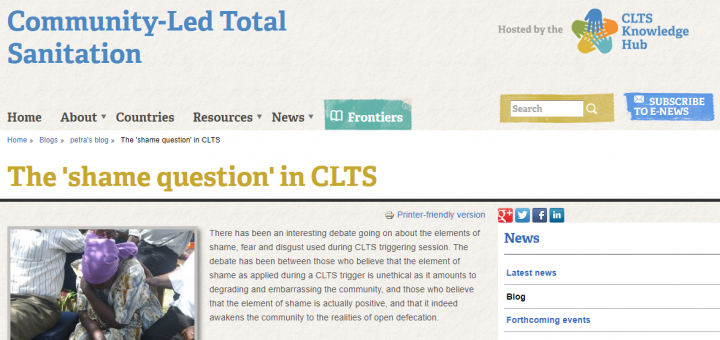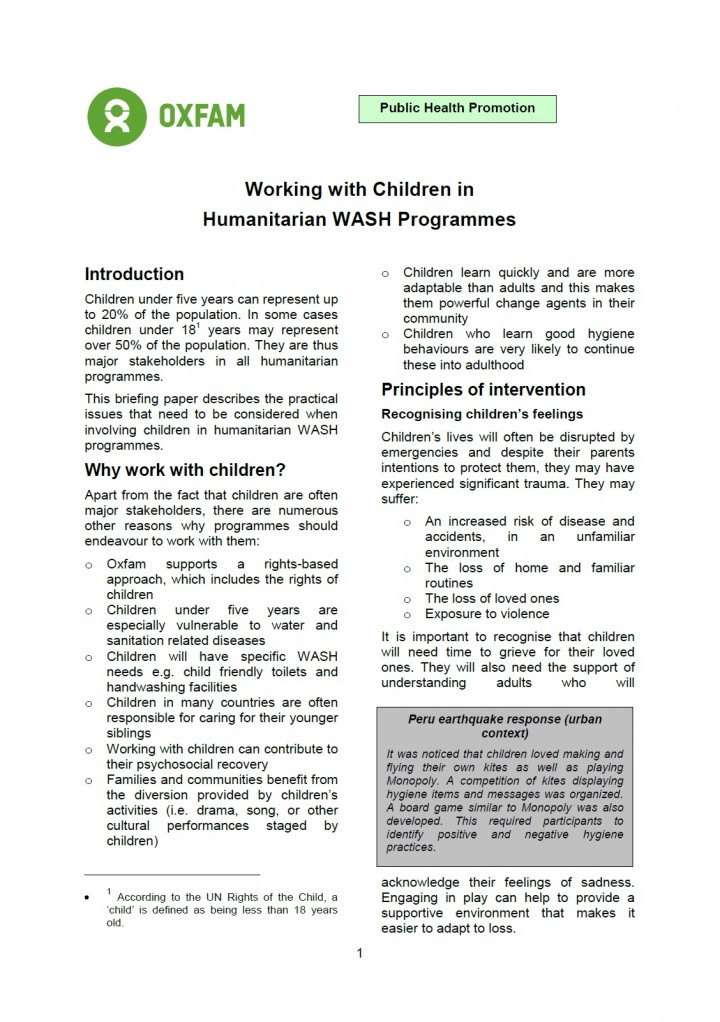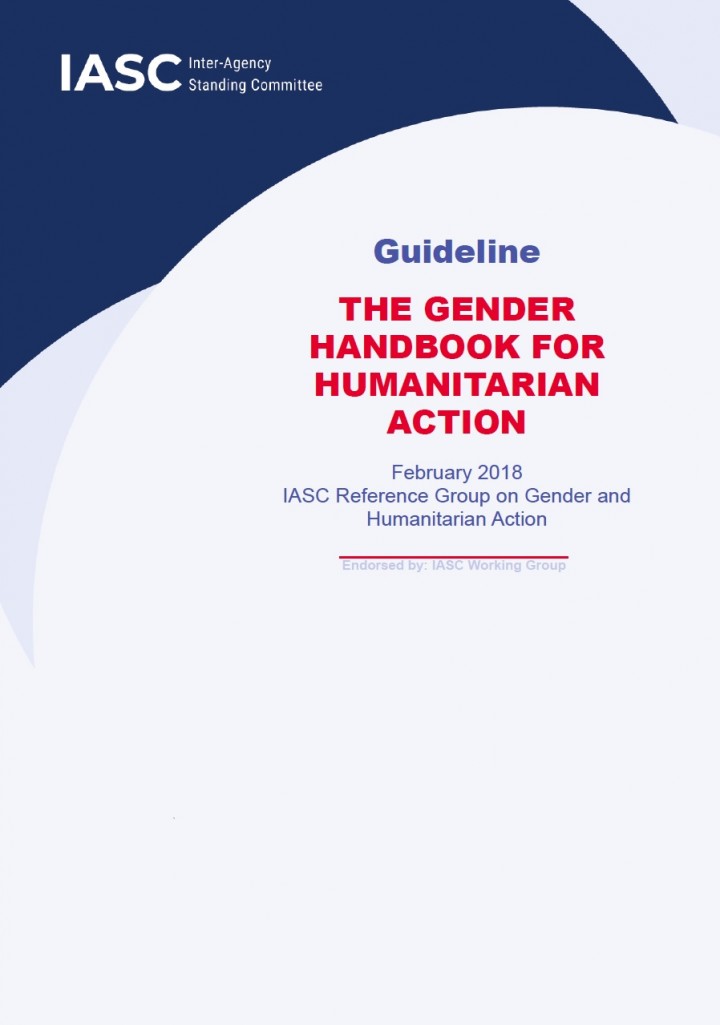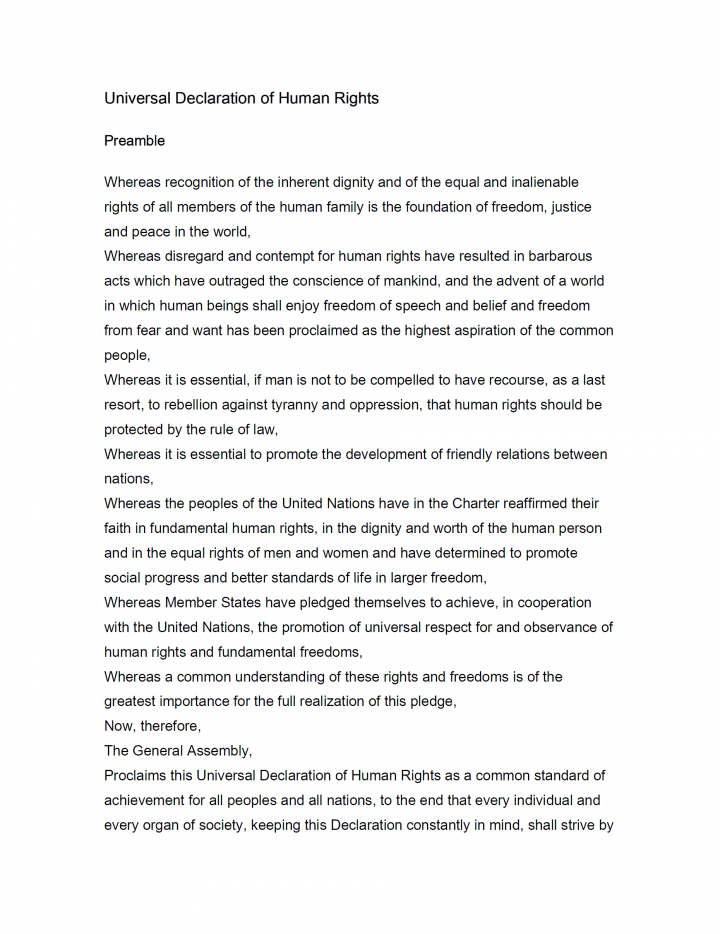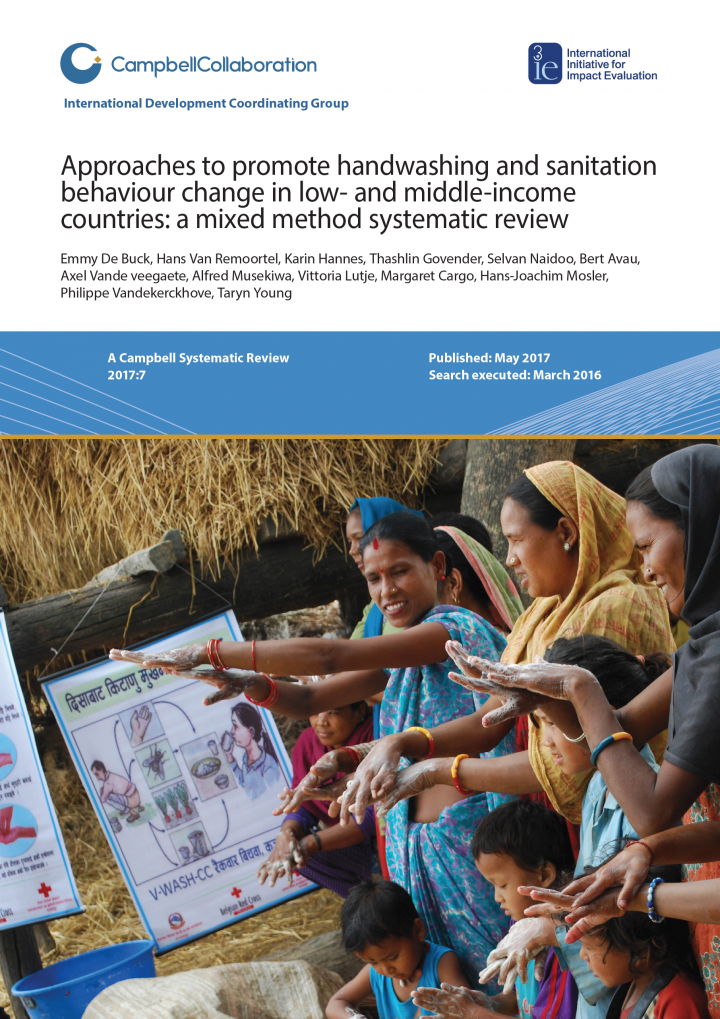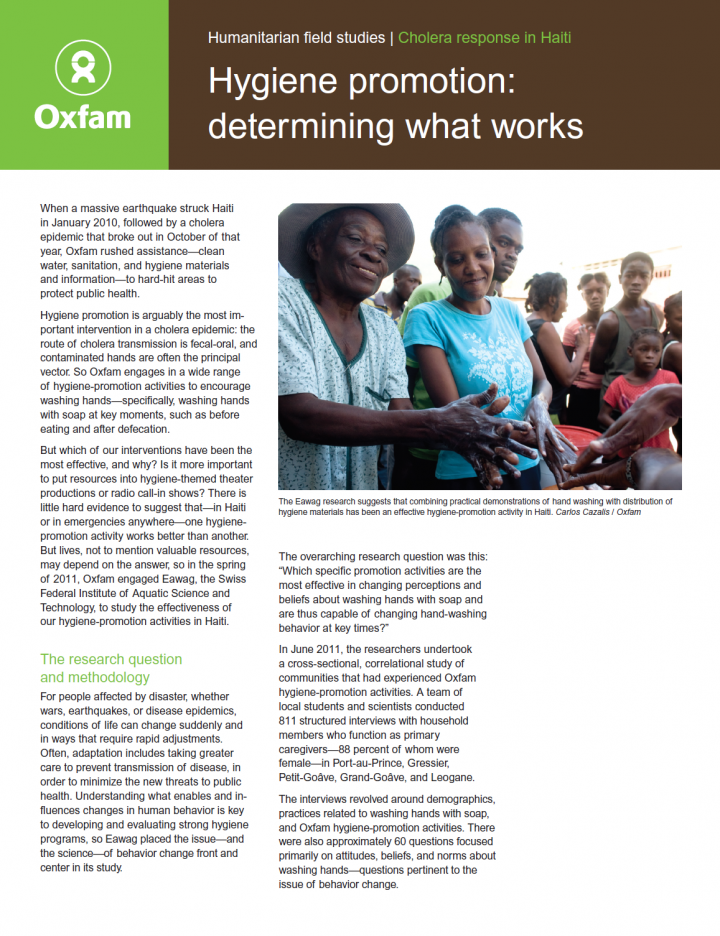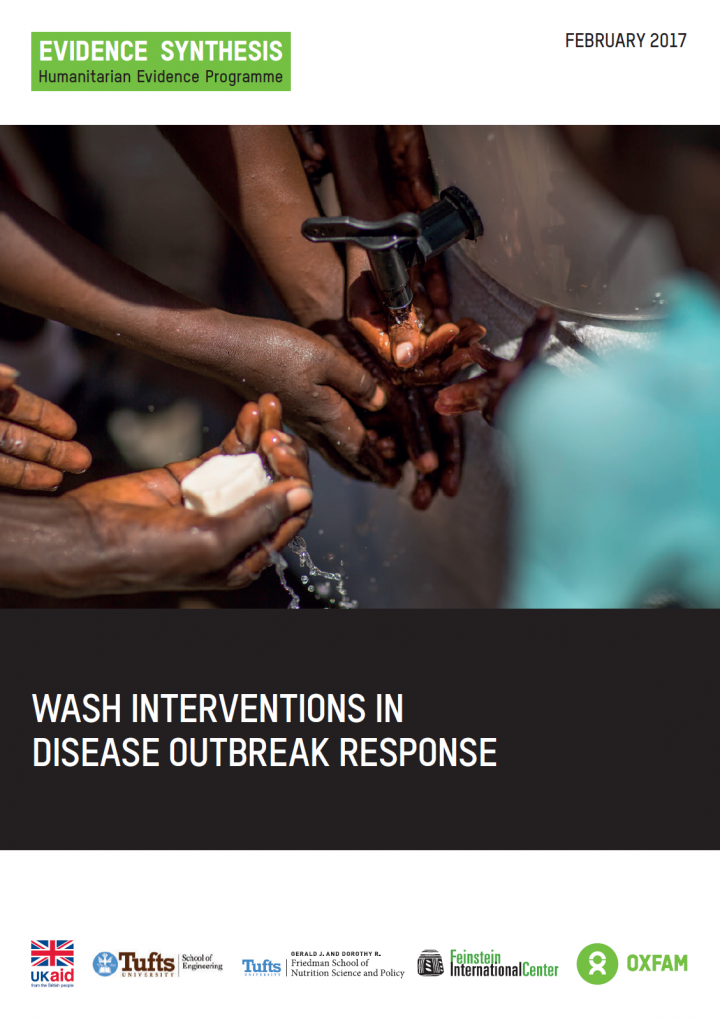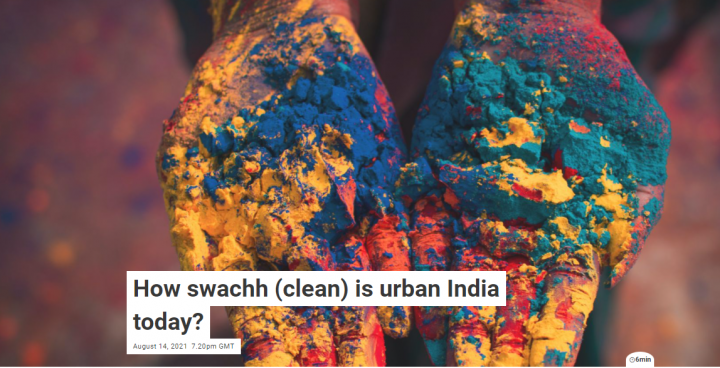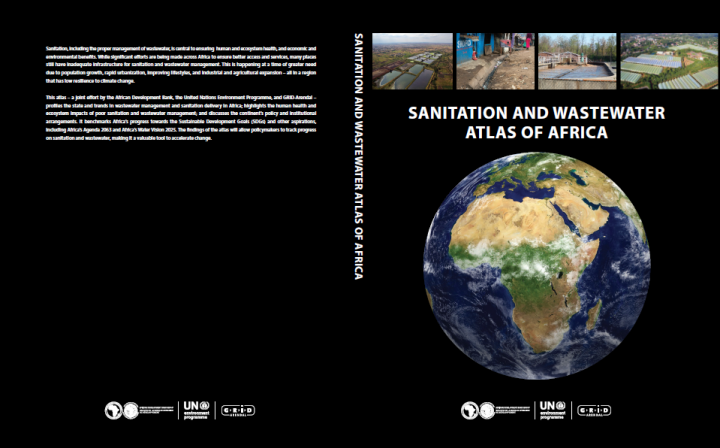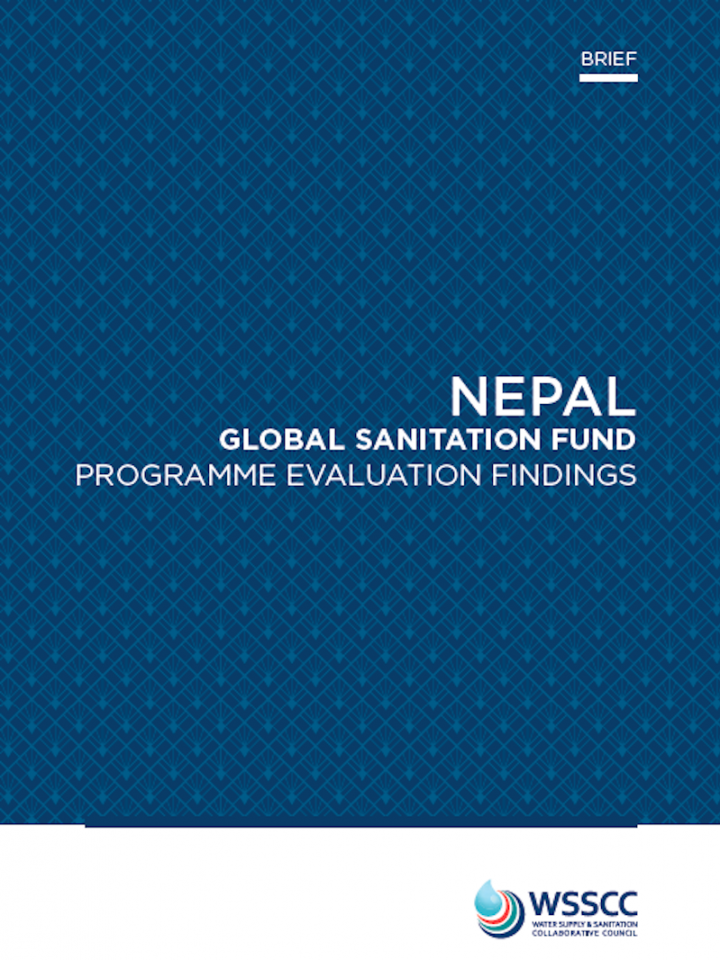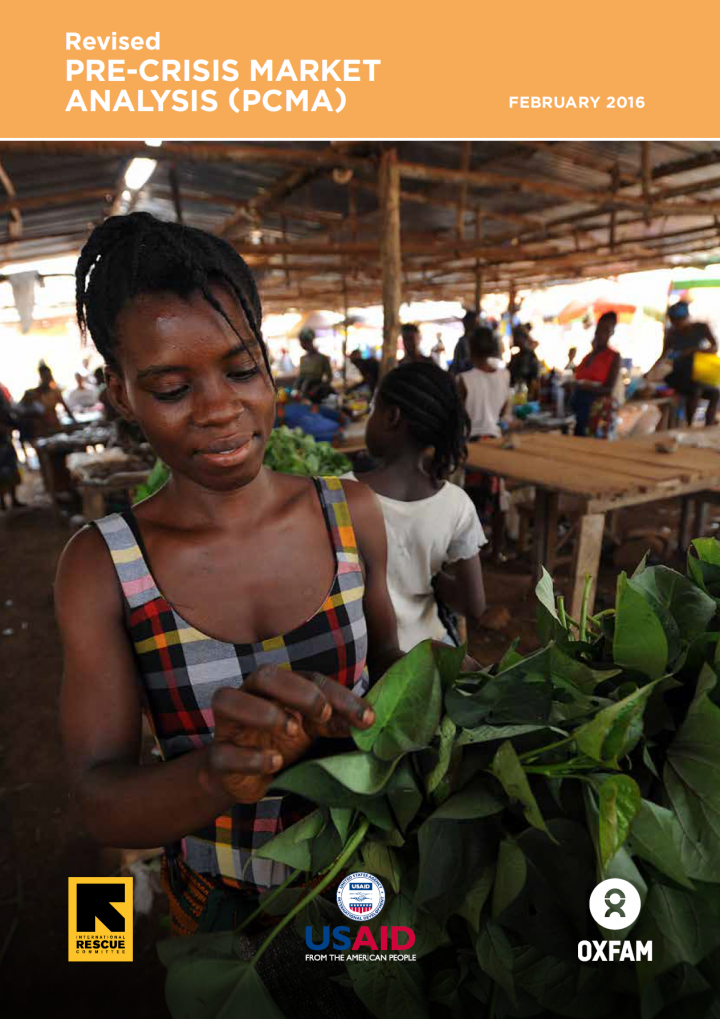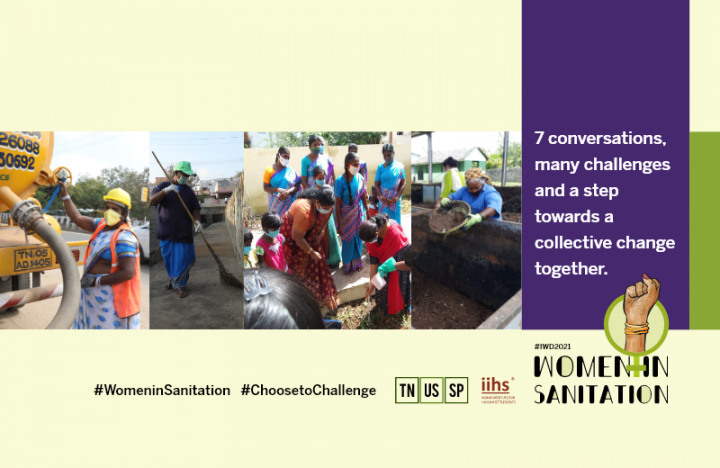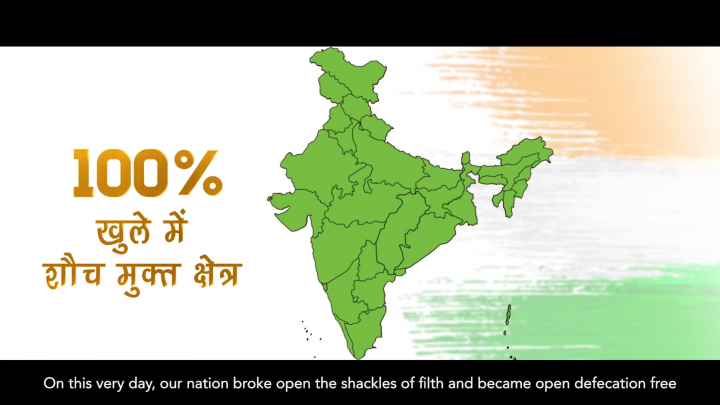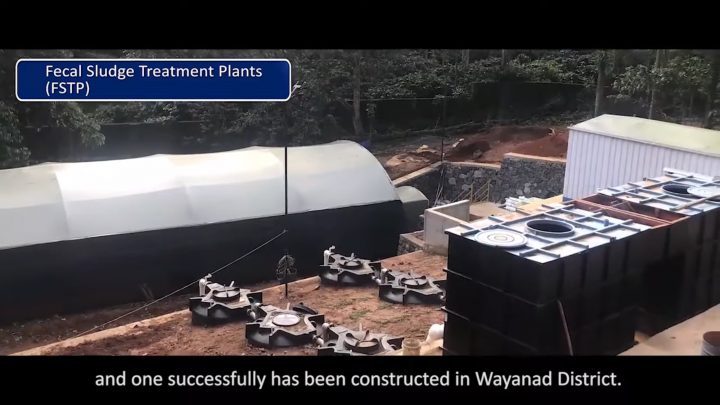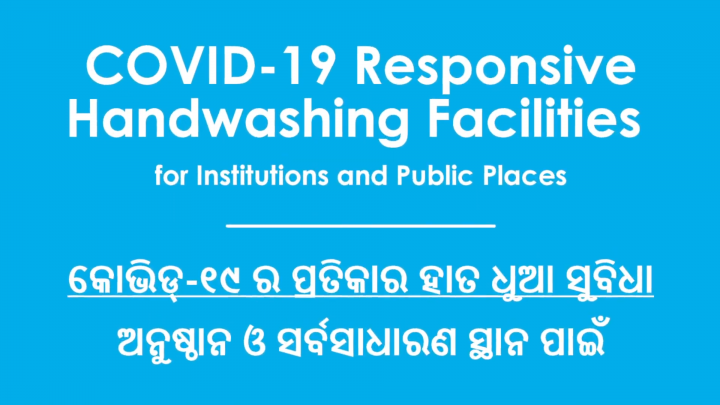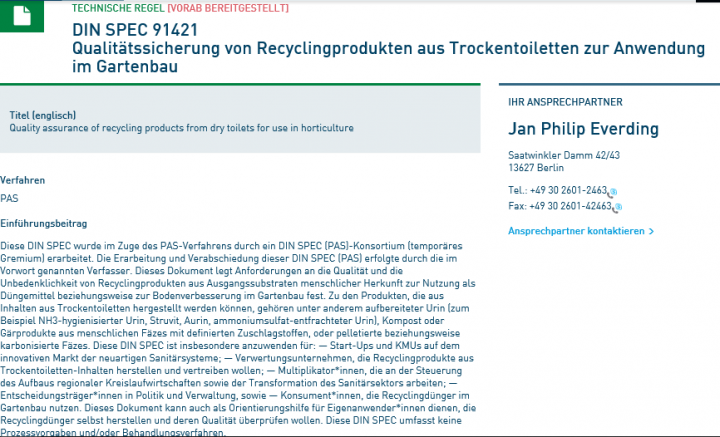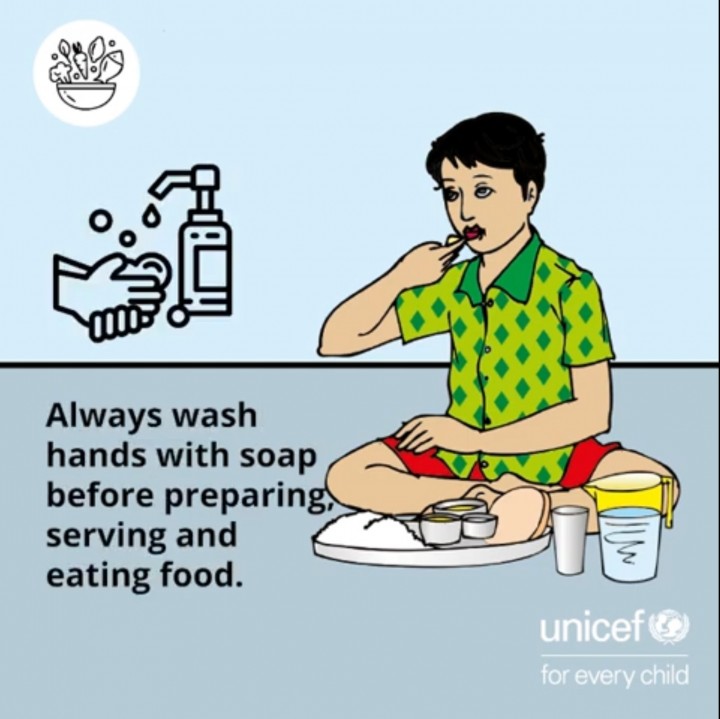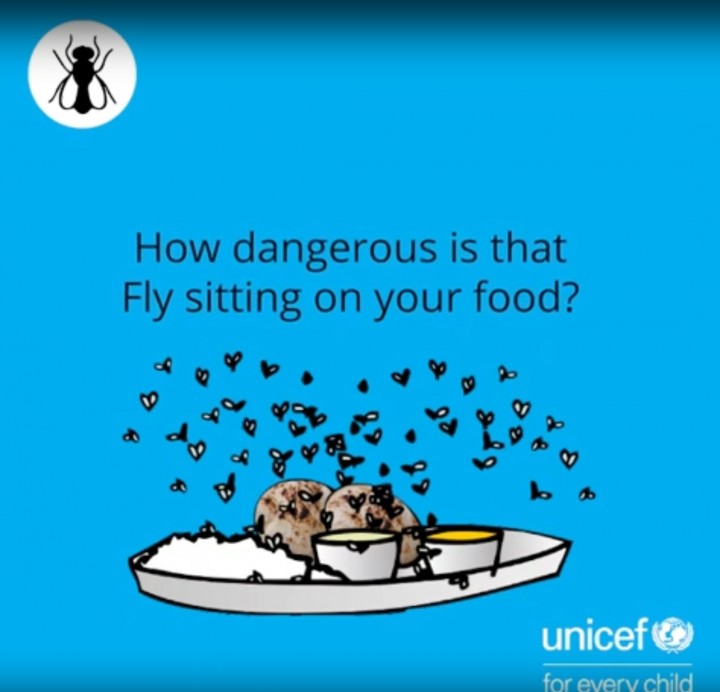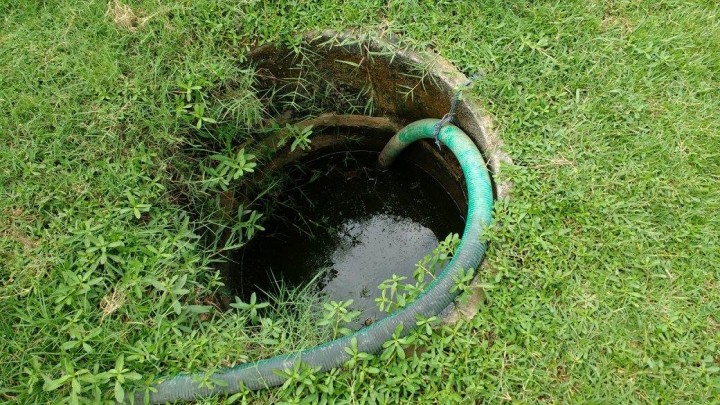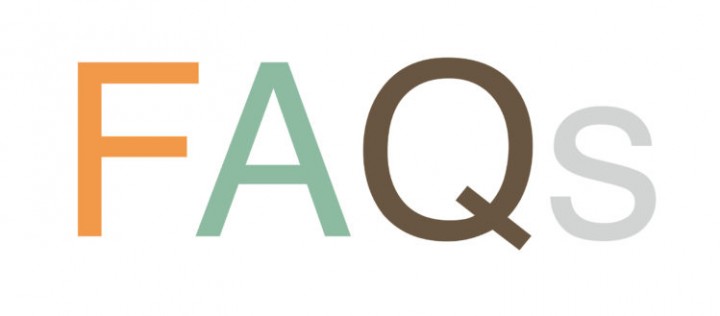Searching for information on Sanitation Workers?
The Sanitation Workers Knowledge + Learning Hub is the best source for all current news, trends, articles and updates on sanitation workers rights around the world.
There has been an interesting debate going on about the elements of shame, fear and disgust used during CLTS triggering session. The debate has been between those who believe that the element of shame as applied during a CLTS trigger is unethical as it amounts to degrading and embarrassing the community, and those who believe that the element of shame is actually positive, and that it indeed …
Children under five years can represent up to 20% of the population. In some cases children under 18 years may represent over 50% of the population. They are thus major stakeholders in all humanitarian programmes. This briefing describes the practical issues that need to be considered when involving children in humanitarian WASH programmes.
Humanitarian action provides life-saving services and facilitates recovery for communities affected
by armed conflict, natural disasters and other complex emergencies. The responsibility of humanitarian actors to promote gender equality is supported by a normative framework validated by extensive field experience. This handbook sets out the rationale for integrating gender equality into …
The Universal Declaration of Human Rights (UDHR) is a milestone document in the history of human rights. Drafted by representatives with different legal and cultural backgrounds from all regions of the world, the Declaration was proclaimed by the United Nations General Assembly in Paris on 10 December 1948 (General Assembly resolution 217 A) as a common standard of achievements for all peoples …
This Campbell Systematic Review examines the effectiveness of different approaches for promoting handwashing and sanitation behaviour change, and factors affecting implementation, in low and middle-income countries. The review summarises evidence from 42 impact evaluations, and from 28 qualitative studies.
When a massive earthquake struck Haiti in January 2010, followed by a cholera epidemic that broke out in October of that year, Oxfam rushed assistance—clean water, sanitation, and hygiene materials and information—to hard-hit areas to protect public health. Oxfam engaged in a wide range
of hygiene promotion activities to encourage washing hands—specifically, washing hands with soap at key …
This evidence synthesis, commissioned by the Humanitarian Evidence Programme and carried out by a team from the Civil and Environmental Engineering Department of Tufts University, identifies, synthesizes and evaluates existing evidence of the impacts of water, sanitation and hygiene (WASH) interventions in disease outbreaks in 51 humanitarian contexts in 19 low and middle-income countries (LMICs).
A rapid assessment of sanitation in Urban India using a National SFD brings out the reality of actual situation on ground and also maps the gaps in various stages of the sanitation chain. Given that the next phase of Swachh Bharat Mission is around the corner, it would be worthwhile to extract learning from the Shit Flow Diagram of Urban India, so that interventions can be supported in the areas …
Sanitation, including the proper management of wastewater, is central to ensuring human and ecosystem health, and economic and environmental benefits. While significant efforts are being made across Africa to ensure better access and services, many places still have inadequate infrastructure for sanitation and wastewater management. This is happening at a time of greater need due to population …
WSSCC's Global Sanitation Fund (GSF) Programme in Nepal was financed by WSSCC and implemented by UN Habitat Nepal. This evaluation brief seeks to provide a summative and a formative forward-looking analysis of the Programme. The analysis is framed around the Organisation for Economic Co-operation and Development's Development Assistance Committee (OECD DAC) evaluation criteria of relevance, …
This document provides guidance for practitioners on conducting market analysis before the onset of an
anticipated crisis using an adaptation of existing post-crisis market assessment tools. Recommendations stemming from this analysis could be used to inform preparedness and DRR programming decision making as well as future emergency responses. This guidance focuses on markets, with the …
To celebrate the occasion of International Women’s day on March 8 th , the Tamil Nadu Urban Sanitation Support Programme (TNUSSP) and the Indian Institute for Human Settlements (IIHS) has launched a social media campaign on women in sanitation. The stories being shared on social media raises important questions, not just to women but also to men who are playing different roles across the full …
As the Swachh Bharat Mission ventures into the second phase of its implementation - moving from ODF to ODF Plus – the Ministry of Jal Shakti released a programme inception film that shows how India will transition its efforts sustain the gains of the first phase and achieve a clean living environment through faecal and plastic waste management. The film has been jointly produced by the WASH and …
The Government of Kerala became open defecation free in 2016, allowing it to tackle the next challenge on the sanitation cycle - Faecal Sludge management. With funding support and supervision from UNICEF, and technical implementation by PriMove and TBF Environmental Solutions, Wayanad district constructed a Faecal Sludge Treatment Plant (FSTP) that uses earthworms to filter through the waste and …
Diese DIN SPEC wurde im Zuge des PAS-Verfahrens durch ein DIN SPEC (PAS)-Konsortium (temporäres Gremium) erarbeitet. Die Erarbeitung und Verabschiedung dieser DIN SPEC (PAS) erfolgte durch die im Vorwort genannten Verfasser. Dieses Dokument legt Anforderungen an die Qualität und die Unbedenklichkeit von Recyclingprodukten aus Ausgangssubstraten menschlicher Herkunft zur Nutzung als Düngemittel …

